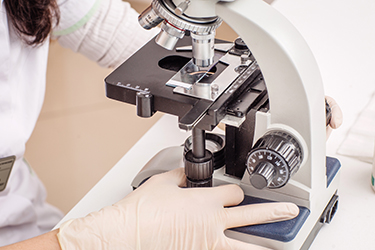In-House Lab Work as a Medical Best Practice

Why veterinarians should offer in-house lab services to every pet patient
The cornerstone of any successful veterinary practice is the proper diagnosis and treatment of disease. This is the best practice of medicine in an overcrowded and expensive market where clients want to save money while still providing the highest quality care for their pets.
Experienced veterinarians can diagnose and treat all but the sickest pet patients with a thorough physical examination and a deep dive into the animal’s history. Lab testing is typically reserved for the most perplexing conditions, but it should be an important part of every routine exam and wellness visit.
The value of simple blood work during routine visits
It can be a struggle for veterinarians to effectively market their practice and the services they provide. They may even find it difficult at times to fully diagnose a disease and provide effective treatment options. It can feel like a sales pitch to recommend lab work when a client’s financial resources are tight, and the results may not impact the recommended treatment method. Bringing diagnostics in-house strengthens your service offerings, while lowering costs and the time spent collecting samples, processing them for shipment to a lab and following up with the client.
Wellness testing can help veterinarians to pinpoint and treat many conditions before they become serious. Some basic lab services you can bring in-house include:
- Complete Blood Count (CBC) tests
- Chemistry profiles
- Blood gases
- Coagulation screening tests
Laboratory medicine is a standard part of the procedure during doctor’s visits, so why not for veterinary visits? Most clients have grown to expect this process. It’s no different when it comes to their animal’s health, but they will want to know the value of these testing efforts. A quick and easy lab process done on-site while the patient is present is a powerful solution for correctly diagnosing conditions and diseases, recommending the next course of action and gaining clients’ trust.
How to market in-house diagnostics
Dr. Kent Adams is the founder of Appalachian Veterinary Services in Christiansburg, Virginia, and served on the Abaxis Scientific Advisory Board. He advises veterinarians to take blood at the start of a physical exam on any animal presented for anything other than preventive health. He states to clients that the purpose of this is such that if he is unable to come to a clear understanding of the problem, he has a starting point and a blood sample that has not been affected by the stress of the examination. In Dr. Kent’s experience, the three most common questions that arise during this process are:
- Do you think we need to run any blood work?
- When will the results be available?
- How much will it cost?
The result of testing blood for all pet patients is that it adds to the understanding of a pet’s case and helps veterinarians to come up with the optimal treatment plan. Best of all, for lab work that is done in-house, the results can be available in minutes. If there’s a good understanding of an animal’s condition and needs but they don’t respond to a proposed treatment, the blood that has been taken and set aside is readily available for further testing. These facts help clients feel at ease and understand the tremendous importance of point-of-care diagnostics.
With the new name comes an even more comprehensive set of integrated services and technology solutions for veterinary practices, including Vets First Choice, an online pharmacy, prescription management and analytics business. Contact your sales representative at 855-724-3461 to learn more.
This blog post is adapted from an article in the Fall 2015 issue of the Animal Health Magazine entitled Powerful ideas to market in-house lab services by Kent Adams, DVM.
Sources:


Working Here
Our team members are encouraged to be the best they can be... at Covetrus we believe we impact one another.
Learn MoreNews & Events
FDA Cautions Pet Owners Not to Feed Texas Tripe Inc. Raw Pet Food Due to Salmonella, Listeria Monocytogenes
The U.S. Food and Drug Administration is cautioning pet owners not to feed their pets any of the Texas Tripe brand raw frozen pet food listed below because several samples of Texas Tripe raw pet food have tested positive for Salmonella and/or L. mono.
Careers
Are you looking for a place to let your talents shine? At Covetrus, we help our practitioner customers better serve their patients and take pride in providing the best customer experience possible. Search our open positions to see our available opportunities.
Newsletter
Stay current with what’s going on with Covetrus, subscribe to receive our newsletter and email communications. Subscribers will receive the latest information in practice management, sales and marketing, animal health, and more.



-3-(1).png?sfvrsn=2d806d73_0)

Leave a comment